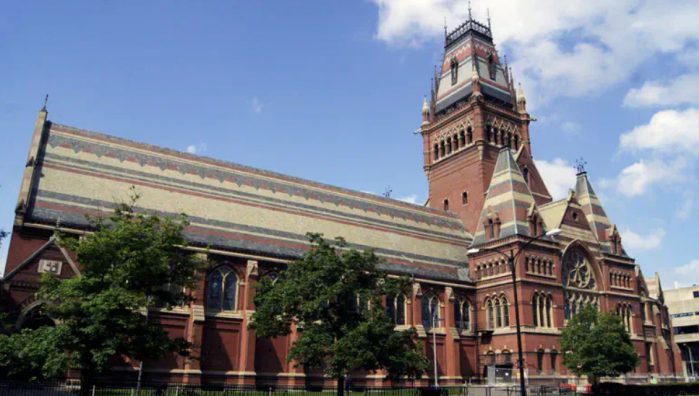Yoav Segev, a Jewish Harvard Business School graduate, has filed a federal lawsuit alleging the university enabled antisemitism and shielded students who assaulted him during a campus protest.
Harvard Faces Federal Lawsuit Over Alleged Antisemitism and Protest Assault
Harvard University is facing a federal lawsuit from Yoav Segev, a Jewish graduate of Harvard Business School, who claims the university and its police force fostered an antisemitic environment and failed to act after he was physically assaulted during a pro-Palestinian demonstration on campus in October 2023.
According to the lawsuit, filed in federal court and reported by National Review, Segev was attacked on October 18, 2023, while walking past a protest wearing a bracelet indicating his Israeli identity. Protest “safety marshals” allegedly shoved him, pushed keffiyehs and placards into his face, and placed an arm around his neck. Though Segev attempted to defuse the situation, the aggression reportedly escalated, with parts of the incident captured on video.
Segev contends that despite the video evidence, Harvard refused to discipline the involved students and obstructed a criminal investigation. The university allegedly imposed a new policy halting disciplinary actions during criminal proceedings—and once the case closed, did not reopen the internal probe. According to Segev, Harvard rewarded the assailants: one received a $65,000 fellowship from the Harvard Law Review; another was named a graduation marshal.
The lawsuit also accuses Harvard of retaliation and privacy violations, claiming the university exposed Segev’s identity in email communications and refused to let him file a complaint anonymously. Segev says he suffered emotional distress, reputational harm, and lasting professional damage.
Segev originally filed a pseudonymous complaint, but now asserts that Harvard’s treatment of him reflects a broader pattern of antisemitic discrimination on campus. “Harvard did everything it could to defend, protect, and reward the assailants,” the complaint reads, “and to prevent Mr. Segev from obtaining relief.”
The legal action follows growing scrutiny of antisemitism at elite U.S. universities, particularly after the October 7 Hamas massacre, which triggered a wave of anti-Israel campus activism. Just days after the attack, 34 Harvard student organizations released a statement blaming Israel, sparking national outrage.
The fallout led to a congressional hearing on campus antisemitism, during which then-Harvard President Claudine Gay, alongside other university leaders, was criticized for failing to clearly condemn calls for genocide against Jews. Gay later resigned amid mounting public and political pressure.
In response to rising concerns, the Trump administration took several steps targeting Harvard, including blocking over $2.2 billion in federal funding, proposing the revocation of its tax-exempt status, and issuing a proclamation barring new foreign students from enrolling at the university. A federal judge has temporarily blocked the latter measure.
In April, Harvard released two internal reports documenting discrimination against Jewish, Muslim, and Arab students during the 2023 campus protests. The reviews confirmed that some students felt marginalized for their political views, underscoring the campus climate of ideological polarization and fear.





